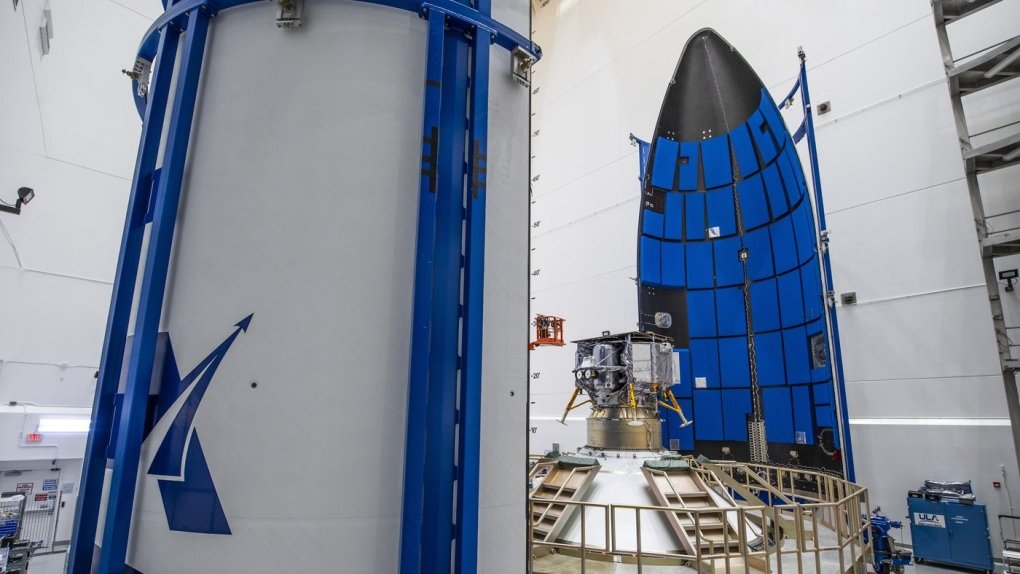The robotic lunar lander Peregrine, carried by the Vulcan rocket from United Launch Alliance (ULA), experienced technical malfunctions after its launch from Cape Canaveral, Florida.

In a major setback for the United States’ ambitious lunar exploration program, a critical fuel loss has jeopardized the mission to put the first commercial craft on the moon. The robotic lunar lander Peregrine, carried by the Vulcan rocket from United Launch Alliance (ULA), experienced technical malfunctions after its launch from Cape Canaveral, Florida.
Launch and Early Malfunctions
The ULA’s Vulcan rocket, tasked with carrying the robotic lunar lander Peregrine, was launched on Monday at 2:18 am from Cape Canaveral. Developed by space robotics firm Astrobotic Technology, Peregrine was on a mission to become the first-ever private company to achieve a lunar landing. However, a few hours into the mission, Astrobotic reported technical malfunctions that raised concerns about the success of the endeavor.
The initial malfunction involved an inability to orient Peregrine’s top-mounted solar panel towards the sun, affecting the spacecraft’s ability to keep its onboard battery charged. This issue was attributed to a malfunction in the propulsion system, setting off a series of challenges for the mission.
Propulsion System Failure and Critical Fuel Loss
Despite engineers managing to improvise a maneuver to tilt the spacecraft in the right direction, Astrobotic later confirmed a propulsion system failure leading to a “critical loss of propellant.”
The company, in a statement on social media, mentioned ongoing efforts to stabilize the situation. However, the severity of the issue forced them to prioritize maximizing the scientific data capture.
“The team is working to try and stabilize this loss, but given the situation, we have prioritized maximizing the science and data we can capture,” Astrobotic wrote on X, formerly Twitter. “We are currently assessing what alternative mission profiles may be feasible at this time,” it added.
Historic Mission in Jeopardy
The Peregrine mission was pivotal in the context of the accelerating space race among private companies. If successful, it would mark the first-ever lunar landing by a private entity and the United States’ first moon landing in more than five decades, since the final Apollo mission in 1972. The lunar landing was scheduled for February 23, with Peregrine tasked to gather essential data about the lunar surface in preparation for future human missions.
This mission also held significance as the inaugural lunar trek under NASA’s Artemis program, designed to return humans to the moon. The ULA’s Vulcan rocket, essential for the mission’s success, aimed to replace the Atlas V rocket and compete with Elon Musk’s SpaceX in the competitive satellite launch market.
Commercial Space Race and Global Competition
The incident highlights the challenges and risks associated with the commercial space race, where private companies strive to achieve historic milestones in lunar exploration.
Astrobotic’s Peregrine aimed to join an elite group of countries, including the US, the Soviet Union, China, and India, that have successfully landed on the moon. However, the journey has proven difficult for some private companies, with Japan’s ispace and an Israeli company experiencing crash-landings on their initial attempts.
Astrobotic faces competition from other US companies in the race to the moon. Intuitive Machines, another private space operator, has spacecraft ready to fly, with aspirations to beat Astrobotic to the lunar surface by taking a more direct path.
Future Prospects and Uncertainties
As the situation unfolds, uncertainties loom over the fate of the Peregrine mission. Astrobotic’s CEO, John Thornton, acknowledged the challenges, stating, “First to launch. First to land is TBD.” The setback underscores the complexities and inherent risks associated with space exploration, even in the era of advanced technology.
The global space community will closely watch the developments, as the outcome not only impacts the commercial space race but also the broader goals of lunar exploration and eventual human presence on the moon.
The setback, though disheartening, may pave the way for valuable lessons and improvements in future lunar missions, ensuring the resilience and adaptability of private companies in the face of unexpected challenges.